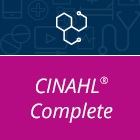Nursing & Health Sciences Research Journal
Abstract
Purpose: To examine the impact of in situ simulation (ISS) with scripting on nursing staff’s knowledge and confidence to initiate rapid response teams (RRTs) immediately after identifying patient condition deterioration. Background/Significance: Failure to rescue (FTR) related to delays in activation of RRT is on the rise, leading to poor patient outcomes. Lack of confidence, knowledge, and empowerment are associated with delayed activation of RRTs. As such, the nursing staff’s confidence is integral in activating RRTs and FTR prevention. In situ simulation may help nurses increase their confidence, thus empowering timely RRT initiation. Methods: This quantitative pretest–posttest study used a convenience sample of nurses and nursing assistants. First, participants completed the Rapid Response Team Survey (RRTS) pretest. Then, they participated in the ISS scenario. Lastly, they completed debriefing and the RRTS posttest. Results: Pearson's correlation results showed no significant relationships between the variables. Dependent t-test results showed statistically significant increases between the pretest and posttest means (Part l, t = -5.51, p < .001, MD = 1.32; Part 2, t = -1.04, p < .01, MD = 3.1). These results suggest that ISS with scripting increased participants' knowledge and confidence in early activation of RRTs. Additionally, staff reported feeling more confident and empowered regarding future RRT decision-making and communication with other healthcare colleagues. Discussion: Early activation of RRTs prevents FTR. The results of this study suggest ISS with scripting increases staff's knowledge, confidence, and empowerment to activate RRTs. We recommend that hospital organizations adopt ISS with scripting to empower nurses to activate RRTs to prevent FTR.
Recommended Citation
Egozcue, E., King, M. A., Bermudez, N., Sadule Rios, N., Villalba, M., & Miller, A. (2023). Empowering Nursing Staff to Activate Rapid Response Teams: Using In Situ Simulation to Bolster Knowledge and Confidence. Nursing & Health Sciences Research Journal, 6(1), 34-48. https://doi.org/10.55481/2578-3750.1168
Creative Commons License

This work is licensed under a Creative Commons Attribution-NonCommercial-No Derivative Works 4.0 International License.


